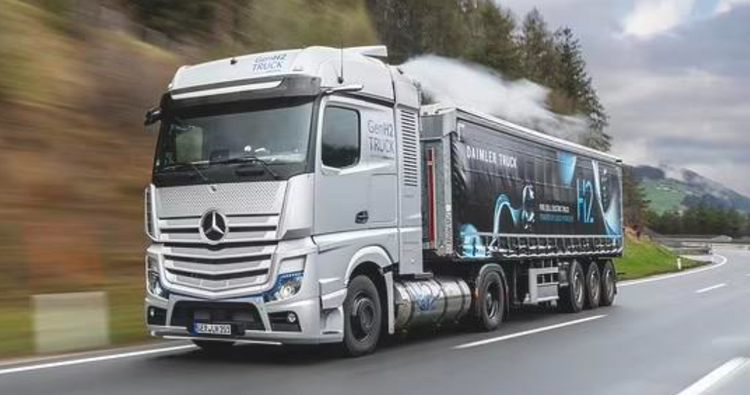Trucking With Hydrogen Towards Success

H2Accelerate released a new whitepaper supporting hydrogen use for long-haul trucking in Europe. The collaboration's H2Accelerate TRUCKS and Inaugural Station Deployment received funding from Clean Hydrogen Partnership and Connecting Europe Facility-Transport. They received €30m for 150 fuel cell trucks and additional funding for 8 hydrogen refueling stations (29 total from H2Accelerate members).
Europe has given funding for deployment of hydrogen trucks and infrastructure. This is Phase 1. It's a big step for the hydrogen industry. The funding will help build the infrastructure needed for hydrogen trucks to operate. Hydrogen trucks will become more common because of this.
These two plans want to show that long-distance trucking with hydrogen is possible. They will build 8 hydrogen refueling stations in France and the Netherlands. Then, they'll bring out 150 fuel cell trucks. The Connecting Europe Facility is also funding them to make 12 more stations, on top of the 9 TotalEnergies is building. This makes a total of 29 hydrogen refueling stations that H2Accelerate members will build in Europe.
Richard Ferrer from the European Climate Infrastructure and Environment Executive Agency is happy about the H2Accelerate projects getting support. The collaboration gets 29 stations to build a sustainable refueling and recharging network across Europe. This network will be on key freight transport corridors. The Clean Hydrogen Partnership funding for 150 fuel cell trucks means that the stations will get more value-for-money with public funding.
. Working together can make things better for customers. The improvement can come from everyone involved in building and moving things. If the infrastructure and the trucking companies work together, roads can be better and trucks can move more efficiently. This will lead to happier customers who get their goods faster and at a lower cost. In the end, collaboration benefits everyone involved.
You can download the whitepaper from H2Accelerate site. The paper explains what technology will be used in Phase 1 for trucks, refuelling stations, and hydrogen production. It talks about renewable energy sources.
We need to gather data and feedback in the first phase. This will help us with the next deployment phase. We want to make things go faster so we can become fully industrialized. This will focus on the performance of both vehicles and infrastructure.
Three big European companies will make hydrogen trucks and increase production.
A project called H2Accelerate TRUCKS will use 150 fuel cell trucks in Europe. Daimler Truck, Iveco Group, and Volvo Group will make the trucks. The Clean Hydrogen Partnership gave €30m to help the project happen. The trucks don't make pollution and can carry up to 44 tonnes. They run on hydrogen, can go over 600km and need less than 15 minutes to refuel. If TRUCKS works well, each company will start making the vehicles regularly. This will save money.
Companies are building big networks of stations and creating more renewable hydrogen for them.
H2Accelerate will set up high-capacity dual-pressure hydrogen refuelling stations across several countries with the help of Linde, Shell, and TotalEnergies. The first 29 stations will be in Belgium, France, Germany, the Netherlands, and Spain. These stations are part of a huge network.
H2 Mobility Solutions, TotalEnergies will build 29 hydrogen refuelling stations in Europe. The project is part of the H2Accelerate collaboration and funded by Connecting Europe Facility. Christian Nissing, Head of Business Development Europe at H2 Mobility Solutions, TotalEnergies, said renewable hydrogen production and refuelling infrastructure is needed for the future of heavy-duty mobility. Nissing said H2Accelerate membership ensures the stations will see large-scale demand from fuel cell trucks.
The stations will use renewable hydrogen. H2Accelerate members are making green hydrogen. Shell made a 10MW electrolyser in Germany. They plan to make a 200MW electrolyser in the Netherlands. The whitepaper explains that hydrogen can be used for mobility and industry. This can lead to big benefits and lower hydrogen prices.

